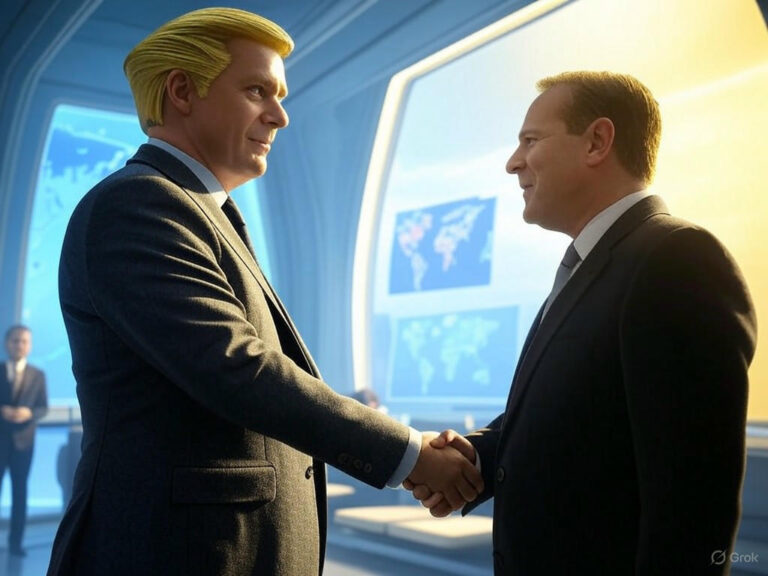
Trump Film Tariffs Reversed Amid Industry Confusion
A Sudden Shake-Up in Hollywood’s World
The entertainment industry in the U.S. faced a whirlwind of uncertainty this week when President Donald Trump’s proposal for a 100% tariff on foreign films hit the headlines, only to be reversed just as quickly. This move, designed to bolster domestic production and showcase economic might, left Hollywood studios, labor unions, and California leaders piecing together its potential fallout. Trump film tariffs, intended as a protective shield, instead highlighted the delicate balance between trade policies and creative collaboration, raising fresh questions about the future of international filmmaking.
Imagine a blockbuster like a modern-day tapestry, woven from talents and locations across the globe—now picture that fabric suddenly strained by new taxes. That’s the reality studios grappled with, as this policy flip-flop exposed vulnerabilities in an industry already navigating streaming wars and global pandemics. What might this mean for your favorite films or the jobs of thousands in creative fields?
Unpacking the Trump Film Tariffs Announcement
On a quiet Sunday evening, President Trump unveiled his plan for sweeping Trump film tariffs on all international imports, aiming to prioritize American stories and boost local creators. With input from his advisor Jon Voight, this initiative sought to redirect audience attention to domestic productions, but it sparked immediate unease rather than enthusiasm. Industry insiders were left wondering how these tariffs would play out in a world where films often blend cultures and borders.
- Major studios worried about enforcement details for projects filmed abroad or co-produced with foreign partners, potentially disrupting budgets and timelines.
- Labor unions raised alarms over possible retaliation that could affect U.S. crews working internationally or exports to key markets.
- California officials, guardians of the entertainment economy, scrutinized the legal and logistical hurdles of applying such tariffs to an intangible product like cinema.
This sudden policy pivot on Trump film tariffs didn’t just rattle boardrooms; it echoed through everyday conversations about what makes Hollywood tick. Have you ever thought about how a single decision in Washington could alter the movies we watch?
Hollywood’s Mixed Reactions to the Tariffs Turmoil
Instead of the anticipated outcry from California’s Democratic leaders, the first wave of responses to Trump film tariffs was pure bewilderment. Calls for clarification from Trump’s team went unanswered, leaving big studios and indie filmmakers alike in the dark about the rules, reach, and rollout. It was like trying to navigate a script with half the pages missing.
“If the President provides more details, we’ll take a serious look,” noted California Governor Gavin Newsom, highlighting the need for transparency in such high-stakes decisions.
Congresswoman Laura Friedman, drawing from her background as a film producer, pointed out the absurdity of taxing something as fluid as a movie. “How exactly do you enforce Trump film tariffs on a production that spans continents? Is it the whole film or just parts?” she asked, underscoring the impracticality in a globalized era.
The Motion Picture Association, speaking for the industry’s giants, opted for caution but emphasized their 2023 trade surplus of $153 billion and strong performance worldwide. This resilience shows why Trump film tariffs might do more harm than good, potentially stifling the very innovation that keeps Hollywood thriving.
Challenges in Enforcing Trump Film Tariffs
Enforcing Trump film tariffs is no simple task, given that films aren’t like widgets you can count at the border—they’re digital creations with tangled international threads. Blockbusters often involve casts from multiple nations, funding from abroad, and shoots in exotic locations, making it tough to label anything as purely “foreign.”
- What about co-productions or films with global stars—would they face these tariffs?
- How do you track and tax streaming content crossing digital borders?
- Could foreign governments retaliate, limiting opportunities for American actors and directors overseas?
These questions aren’t just theoretical; they’re real hurdles that could reshape how stories are told and shared. For instance, think of a hypothetical scenario where a U.S.-European collaboration like a Marvel film gets hit—suddenly, costs skyrocket, and audiences lose out on diverse narratives.
Lessons from History: Past Attempts at Film Trade Barriers
Trump film tariffs aren’t the first brush with protectionism in entertainment. Back in the early 2000s, U.S. groups pushed for tariffs on Canadian productions due to alleged subsidies, but those efforts fizzled out amid similar complexities. This echoes today’s challenges, proving that trade policies often clash with the fluid nature of creative work in a digital age.
Historically, such moves have rarely succeeded without causing broader disruptions. A relatable example? Just as musicians tour globally without borders halting their gigs, filmmakers rely on seamless collaboration to innovate and reach fans.
Global Repercussions of the Tariffs Debate
Overseas, leaders quickly voiced doubts about Trump film tariffs, arguing that American viewers and creators would ultimately pay the price. European Parliament member Laurence Farreng, aligned with French President Emmanuel Macron, warned that U.S. audiences might end up with pricier tickets and fewer options. This issue is set to dominate events like the Cannes Film Festival, where international deal-making is king.
It’s a reminder that entertainment isn’t isolated—it’s a global conversation. If tariffs escalate, could your access to foreign films diminish, or might it spark a wave of creative boycotts?
Why Hollywood’s Economy Stands Strong—And at Risk
At its core, Hollywood’s economic prowess extends far beyond U.S. shores, with the industry racking up a $153 billion trade surplus in 2023 and maintaining positive balances in every major market. This success supports millions of jobs, from set designers to digital effects artists, making it a powerhouse of American exports.
- From generating billions in revenue to fostering innovation, Hollywood’s global reach is enviable.
- Yet, disruptions like Trump film tariffs could jeopardize investments and collaborations that drive this growth.
- For everyday folks, that means potential job losses or higher costs for entertainment we enjoy.
If you’re in the industry or just a fan, consider how policies like these could shift the landscape—perhaps pushing for more local stories at the expense of diverse voices.
Weighing Trump Film Tariffs Against Smarter Alternatives
Instead of broad tariffs, experts like Congresswoman Friedman champion national tax credits as a more effective boost for domestic film. Let’s break it down in a simple comparison:
| Policy Approach | Potential Benefits | Drawbacks to Watch |
|---|---|---|
| Trump Film Tariffs on Foreign Imports | Could encourage local production by curbing foreign competition | Hard to implement, risks international backlash, and might inflate costs for consumers |
| National Tax Credits | Directly incentivizes U.S. jobs and creativity without borders | May require significant funding and careful monitoring to avoid misuse |
Actionable tip: If you’re a filmmaker, advocate for policies like tax credits that nurture homegrown talent without alienating global partners.
From Reversal to Reflection: What We Learned
In the face of growing backlash and confusion, the White House backed down on Trump film tariffs, but the episode laid bare the intricate links between trade decisions and creative sectors. It showed how rash moves can undermine industries built on worldwide cooperation, offering a cautionary tale for future policies.
For instance, a quick reversal like this might prevent immediate damage, but it leaves lingering questions about stability in entertainment.
Charting a Clearer Path Forward
As the industry regroups, there’s a push for thoughtful strategies over impulsive tariffs. Leaders are advocating for incentives that promote U.S. production, fair rules for digital media, and open dialogues between policymakers and creatives.
- Targeted incentives could make filming in America more attractive without penalties.
- International agreements might ensure equitable trade in an era of streaming dominance.
- Regular discussions could prevent surprises like Trump film tariffs from derailing progress.
Looking ahead, events like Cannes will keep these topics alive—will we see more collaboration or continued uncertainty? If you’re passionate about film, staying informed and voicing your opinions could make a difference.
Wrapping Up: Hollywood’s Path in an Uncertain World
The saga of Trump film tariffs serves as a stark reminder of the entertainment industry’s vulnerability to policy shifts. Moving forward, fostering global partnerships rather than barriers will be key to sustaining Hollywood’s magic. What are your thoughts on how trade policies should evolve to support creative fields?
To dive deeper, check out our related posts on entertainment trends or share this article with fellow film enthusiasts. We’d love to hear your insights in the comments below—let’s keep the conversation going!
References
1. Politico. “Trump’s Film Tariff Confuses Hollywood.” Politico Article.
2. ISO. “How People Read on the Web.” ISO Guidelines (PDF).
3. Northbeam. “What is Marketing ROI and How Can You Improve It?” Northbeam Post.
4. Wait But Why. “Neuralink and the Brain’s Magical Future.” Wait But Why Article.
5. BMon. “An Article a Day Archive.” BMon Archive.
6. HomeworkForYou. “Document Upload.” HomeworkForYou PDF.
7. IDU.ac.id. “An Introduction to Industrial and Organizational Psychology.” Psychology PDF.







